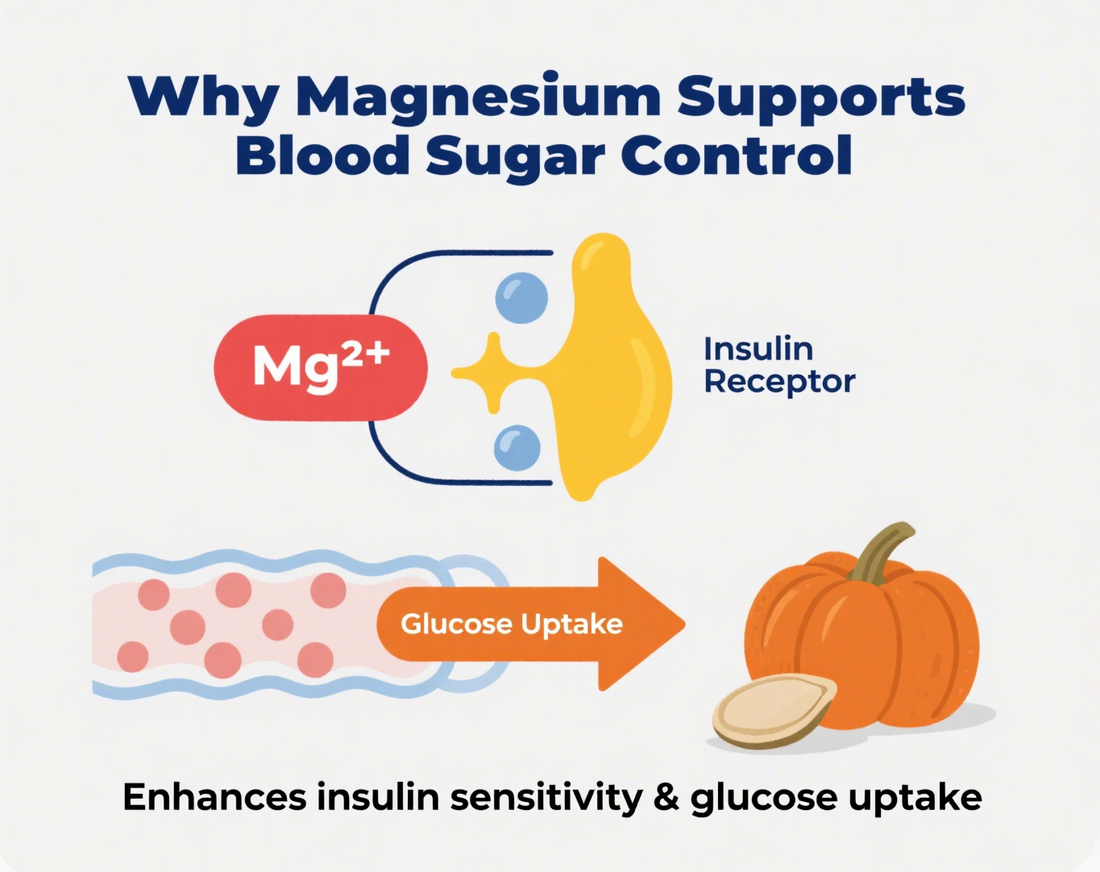Magnesium and Blood Sugar: The Mineral Your Body's Been Missing

When people talk about managing blood sugar, the conversation usually jumps straight to cutting carbs, exercising more, or maybe sipping on that cinnamon tea your aunt swears by. But there's a quiet hero in the background that doesn't get nearly enough credit: magnesium.
Here's the science without the boring lecture. Magnesium plays a huge role in how your body uses insulin, the hormone that helps move sugar from your blood into your cells for energy. When you've got enough magnesium, your cells respond better to insulin — this is called insulin sensitivity. Think of it like upgrading your phone's processor so it runs smoother and faster. Without enough magnesium, your body's “sugar management system” starts lagging, and over time, that can increase your risk for type 2 diabetes.
Now here's the problem — most people are falling short on magnesium without even realizing it. Studies show that more than half of Americans don't get enough magnesium from their daily meals. Why? Because our diets have shifted away from magnesium-rich foods. We're eating more processed snacks and less whole, unprocessed food where magnesium naturally lives.
So where can you actually find this blood-sugar-friendly mineral? Some of the best sources include:
Almonds – 1 handful (28g) = about 80mg of magnesium
Spinach – ½ cup cooked = about 78mg
Pumpkin seeds – 2 tablespoons = about 150mg
Black beans – ½ cup cooked = about 60mg
Dark chocolate (70% or more) – 1 ounce = about 64mg (sweet news, right?)
Here's the catch — even if you try to eat these foods regularly, it's hard to hit the daily target without being intentional. The recommended daily amount for magnesium is around 400–420mg for men and 310–320mg for women, and that's not easy to get if your breakfast is a bagel, your lunch is takeout, and dinner is… whatever's in the freezer.
The fix? Start mixing magnesium-rich foods into every meal. Toss pumpkin seeds on your salad, snack on almonds instead of chips, add spinach to your omelets, or enjoy a small square of dark chocolate after dinner. Not only will your blood sugar thank you, but your muscles, heart, and brain will too.
Bottom line: magnesium isn't just another mineral on a nutrition label — it's a key player in keeping your blood sugar stable and your energy steady. Give your body the boost it's been missing, and watch the difference it makes.
